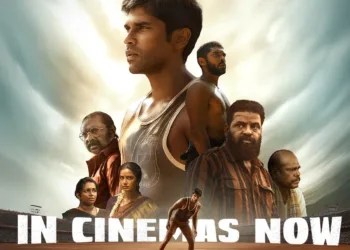Mumbai’s housing crisis has taken a political turn as the Shiv Sena (UBT) intensifies its demand for housing reservation for native Marathi speakers. The party’s lawmakers on Friday demanded that 20 per cent houses in buildings in Mumbai be reserved for native Marathi speakers, reigniting the debate over ‘Marathi Manoos’ rights in the financial capital.
Table of Contents
Key Demands at a Glance
| Aspect | Details |
|---|---|
| Reservation Percentage | 20% (Recent demand) / 50% (Earlier proposal) |
| Target Area | Mumbai residential buildings |
| Beneficiaries | Native Marathi speakers |
| Political Party | Shiv Sena (UBT) |
| Key Leaders | Ambadas Danve, Milind Narvekar, Anil Parab |
| Current Status | Formal demand submitted to minister |
Political Context Behind the Demand
The Uddhav Thackeray-led Shiv Sena (UBT) has revived its traditional ‘Marathi Manoos’ agenda ahead of upcoming elections. Leader of Opposition in the legislative council Ambadas Danve and Milind Narvekar gave a letter with this demand to minister Shambhuraj, making it an official political stance.
This move comes after party MLC Anil Parab had earlier proposed an even more ambitious 50% reservation through a private member’s bill in the legislative council, highlighting the party’s commitment to addressing what they perceive as marginalization of local Marathi speakers.

Housing Crisis Fueling the Demand
Mumbai’s astronomical property prices have made homeownership increasingly difficult for middle-class families, particularly those from the local Marathi-speaking community. The party argues that rising real estate costs and an influx of migrants have pushed native speakers out of their own city.
For those tracking Mumbai’s real estate trends, this political demand reflects deeper socio-economic tensions in India’s financial capital.
Legal and Implementation Challenges
While the demand has political merit for the party’s vote bank, implementing such reservations faces significant legal hurdles. Housing is primarily governed by private builders and market forces, making mandatory reservations complex to enforce.
The Maharashtra Housing and Area Development Authority (MHADA) already provides some housing schemes for various categories, but extending this to private developments would require substantial legislative changes.
Impact on Mumbai’s Real Estate Market
If implemented, such reservations could significantly impact Mumbai’s property market dynamics. Builders might face restrictions on buyer selection, while the measure could influence pricing strategies and project planning.
Real estate experts suggest this could create a two-tier market system, potentially affecting overall housing supply and demand equations. For comprehensive analysis of Mumbai’s housing policies, such political interventions represent a significant shift from market-driven allocation.

Previous Attempts and Political History
The Shiv Sena’s focus on Marathi identity isn’t new. Founded by Bal Thackeray in 1966, the party has consistently championed the cause of Marathi speakers in Mumbai. However, translating this political rhetoric into concrete housing policies has proven challenging.
Similar demands have been made periodically, but none have successfully navigated the complex legal and constitutional framework governing housing rights and anti-discrimination laws.
Opposition and Support
The demand has predictably divided opinion along political and community lines. While Marathi organizations support the move, critics argue it could create divisive precedents and conflict with constitutional principles of equality.
The Election Commission of India and various civil rights organizations have historically opposed such community-based reservations in private sectors, citing potential constitutional violations.
What This Means for Mumbai
As Mumbai continues to grapple with housing shortages and affordability issues, political solutions like reservation demands highlight the desperation of various communities. Whether this latest push gains legislative traction remains to be seen, but it certainly adds another layer to Mumbai’s complex urban challenges.
The timing, coinciding with electoral cycles, suggests this issue will remain in political discourse, potentially influencing both housing policies and Maharashtra’s political landscape.
FAQs
Q: What percentage of housing reservation is Shiv Sena (UBT) demanding for Marathi speakers?
A: The party is currently demanding 20% reservation in Mumbai buildings, though earlier proposals by MLC Anil Parab suggested 50% reservation for native Marathi speakers.
Q: Is this housing reservation demand legally feasible in private buildings?
A: Implementation faces significant legal challenges as housing is primarily governed by private builders and market forces. Such reservations would require substantial legislative changes and could face constitutional scrutiny regarding equality principles.








